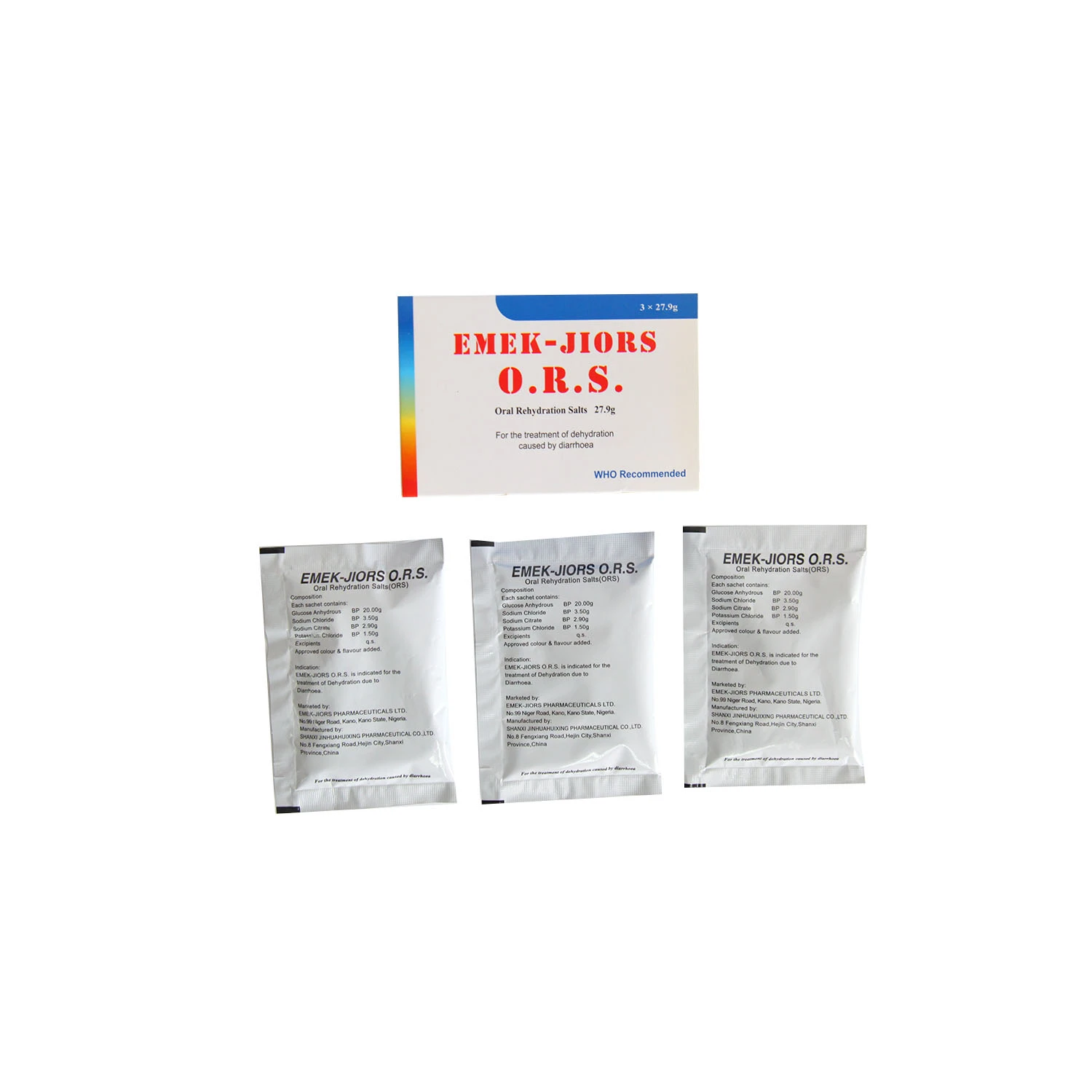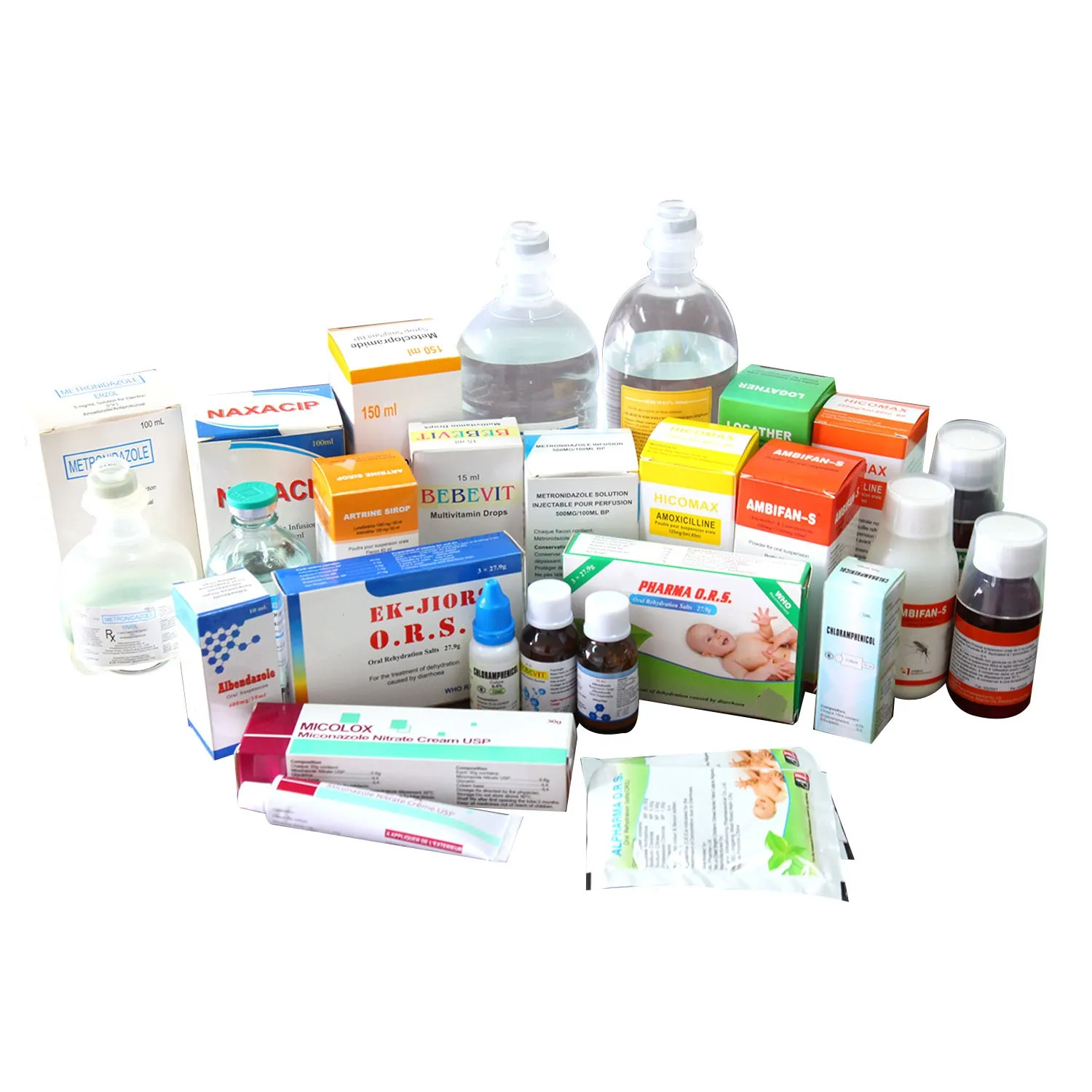Product Description
Oral Rehydration Salts for Children. Usual pediatric dose Mild or moderate dehydration: Oral, initially 50 to 100 mL per kg of body weight during the first four hours, the dosage being adjusted to 100 mL per kg of body weight per day until diarrhea stops, the amounts and rates being adjusted as needed and tolerated, depending on thirst and response to therapy.
Drug Name
Generic name. Oral Rehydration Salts
English name. Oral Rehydration Salts
Why is it important for child to take this medicine
Although diarrhoea in children usually gets better on its own, it causes loss of water and body salts. The right balance of salts and water is important for the body to work in a healthy way. If your child loses too much water, they may become deydrated. In severe cases, this can be dangerous, especially in very young children, when it is difficult to see the signs of dehydration.
Your child may be dehydrated if they have any of the following:
- fewer wet nappies, nappies that are lighter than usual, or an older child is urinating (weeing) less often (less than the usual 2–3 times per day)
- they are less active than normal and become drowsy
- a dry mouth
- crying without tears
- a sunken soft spot on the top of a baby`s head.
Oral rehydration salts do not treat the diarrhoea itself, but they replace the salts and water that are lost, and so reduce the effects of dehydration.
Usual pediatric dose
Rehydration
Mild or moderate dehydration: Oral, initially 50 to 100 mL per kg of body weight during the first four hours, the dosage being adjusted to 100 mL per kg of body weight per day until diarrhea stops, the amounts and rates being adjusted as needed and tolerated, depending on thirst and response to therapy.
Specification
5.125 g
Quality Standard
USP
Packaging
10 sachets/bag or 2 sachets/box
Preparations
solution, powder etc
Product Description
Oral Rehydration Salts for Children. Usual pediatric dose Mild or moderate dehydration: Oral, initially 50 to 100 mL per kg of body weight during the first four hours, the dosage being adjusted to 100 mL per kg of body weight per day until diarrhea stops, the amounts and rates being adjusted as needed and tolerated, depending on thirst and response to therapy.
Drug Name
Generic name. Oral Rehydration Salts
English name. Oral Rehydration Salts
Why is it important for child to take this medicine
Although diarrhoea in children usually gets better on its own, it causes loss of water and body salts. The right balance of salts and water is important for the body to work in a healthy way. If your child loses too much water, they may become deydrated. In severe cases, this can be dangerous, especially in very young children, when it is difficult to see the signs of dehydration.
Your child may be dehydrated if they have any of the following:
- fewer wet nappies, nappies that are lighter than usual, or an older child is urinating (weeing) less often (less than the usual 2–3 times per day)
- they are less active than normal and become drowsy
- a dry mouth
- crying without tears
- a sunken soft spot on the top of a baby`s head.
Oral rehydration salts do not treat the diarrhoea itself, but they replace the salts and water that are lost, and so reduce the effects of dehydration.
Usual pediatric dose
Rehydration
Mild or moderate dehydration: Oral, initially 50 to 100 mL per kg of body weight during the first four hours, the dosage being adjusted to 100 mL per kg of body weight per day until diarrhea stops, the amounts and rates being adjusted as needed and tolerated, depending on thirst and response to therapy.
Specification
5.125 g
Quality Standard
USP
Packaging
10 sachets/bag or 2 sachets/box
Preparations
solution, powder etc




